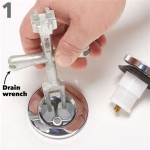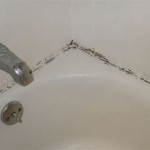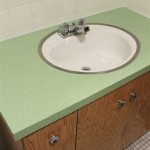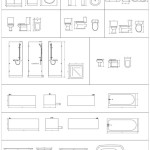How To Seal Around Bathroom Sink
Sealing around a bathroom sink is an essential step in preventing water damage and ensuring the longevity of your bathroom fixtures. There are several key aspects to consider when sealing around a bathroom sink, including the type of sealant you use, the proper preparation of the surface, and the correct application of the sealant. By following these essential steps, you can ensure a watertight seal that will protect your bathroom from moisture damage.
1. Choosing the Right Sealant
The first step in sealing around a bathroom sink is to choose the right sealant. There are several different types of sealants available, each with its own advantages and disadvantages. The most common type of sealant used for bathroom sinks is silicone caulk. Silicone caulk is a flexible and waterproof sealant that is easy to apply and can adhere to a variety of surfaces. Other types of sealants that can be used for bathroom sinks include acrylic caulk, latex caulk, and polyurethane caulk.
2. Preparing the Surface
Before applying sealant around a bathroom sink, it is important to properly prepare the surface. This involves cleaning the surface with a mild cleaner and removing any dirt, debris, or old sealant. The surface should also be dry before applying the sealant.
3. Applying the Sealant
Once the surface is prepared, the sealant can be applied. Sealant is typically applied using a caulk gun. The caulk gun should be held at a 45-degree angle to the surface and the sealant should be applied in a continuous bead. The bead of sealant should be smooth and even, and it should be pressed into the joint between the sink and the countertop.
4. Tooling the Sealant
After the sealant has been applied, it should be tooled. Tooling involves using a finger or a caulk tool to smooth the bead of sealant and remove any excess sealant. Tooling the sealant helps to ensure a neat and professional-looking finish.
5. Curing the Sealant
Once the sealant has been tooled, it needs to be allowed to cure. The curing time for sealant varies depending on the type of sealant used. It is important to follow the manufacturer's instructions for curing time.
By following these essential steps, you can ensure a watertight seal around your bathroom sink that will protect your bathroom from moisture damage. Sealing around a bathroom sink is a relatively simple and inexpensive task that can help to extend the life of your bathroom fixtures and prevent costly repairs.
How To Re Caulk A Bathroom Sink Ifixit Repair Guide

How To Re Caulk A Sink

Home Dzine Bathrooms How To Seal Around Bath Tub Or Basin
How To Seal A Sink Eys

How To Seal A Sink Eys

How To Seal A Sink Eys

Installing A New Bathroom Sink

How To Caulk A Bathroom Sink

How To Seal A Kitchen Or Bathroom After Tiling Walls And Floors

How To Caulk A Bathroom Sink
Related Posts







